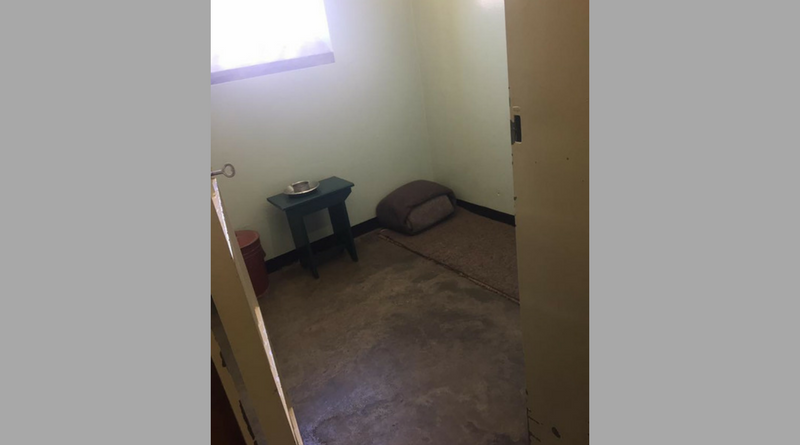By: Essence Buckman, Staff Writer
Last time I wrote I was experiencing my first week of class after moving into my homestay. The time since has been pretty emotional because of the excursions my classmates and I have been on, which have included visits to schools, museums and historical sites.
We visited District 6, Langa (my first homestay township) and Gugulethu. Before the visits to those places, our tour guides lit a candle in the classroom and told us that we each had to stand before the candle and say our name as well as the name of someone we would like to take on this journey. I sat there wondering who I should bring. Those who went before me named a deceased person they would want to take with them, and that’s when I knew who I would take. I stood before the class and chose to take our beloved, deceased Wofford student Jerimiah Tate because I believed he would enjoy an experience like this.
While visiting those three sites, we listened to the heartbreaking stories of children, teens and adults who protested and lost their lives during the Apartheid era. I also learned about a white woman from America, Amy Beihl, who was stoned by a group of protestors assuming she was just like their oppressor due to the color of her skin. She was an innocent woman who was in the wrong place at the wrong time. Our tour guides participated in events during apartheid and I could notice the pain and struggle they faced telling us these stories.
The next day, a few classmates and I visited Langa High. They weren’t expecting us so we didn’t stay long. During our time there we visited a math class, a geography class and a history class. As I observed the students in the classroom, I felt a wave of sadness. They looked very tired and not full of life like I expected. The teachers explained that most of the students travel far from out of town to come to school and are usually always late. They also said that they don’t give homework because it would be an insult to the students. Most of the students come from broken homes and have to worry about even having a meal when they go home.
Learning that broke my heart and was a harsh reminder of how cruel, cold and strong white supremacy is. Barely any money is being put towards resources for many black schools in Capetown, and after hearing my fellow classmates’ account of their visits to the white schools, all I could do is shake my head. So many children of color are suffering in South Africa, America and other places due to social and racial hierarchies. The sad truth is that it will take a long time, if at all, for blackness to not correlate with a lack of resources.
Lastly, my visit to Robben Island was indescribable. I felt an array of emotions listening to our tour guide’s account of his experience on Robben Island as a prisoner for 10 years. Robben Island initially was a place for the societal outcasts, such as Lepers or those with mental illnesses. When it became a prison, it was for the non-white criminals and political criminals. Of course, this place is most famous for having held Nelson Mandela. I was lucky to be able to step inside the cell that Mandela lived in. This is a privilege I never imagined I would have.
The highlight of that experience was our tour guide’s story of being tortured. He was shocked several times until he lost control of his bowels, and was then forced to eat his feces. His torturers would lift him in the air and slam him to the ground multiple times. His arm was broken from this. He never had visitors until one day he was told that his father was going to visit. Sadly, right before the visit he was told that his father was shot six times and sent back to his cell. The same men who tortured him were the ones who shot his father. My stomach was queasy listening to his story. I could not imagine how traumatic that was, and still is for him. However, I commend his strength. He is admirable, and inspiring.
Words can’t describe how emotional these excursions were. I’ve only been here about a month and my emotional limits are being challenged and pushed. I keep reminding myself that this trip is more than a fun experience out of the country. This trip is not your average study abroad to Europe. This is Multiculturalism and Human Rights in Post-Apartheid South Africa. My classmates and I are faced with difficult topics every day because we are living in a society not far removed from Apartheid. This country has a long way to go when it comes to issues of racial and gender equality. This study abroad experience is one that will change me in ways I cannot yet explain.






























